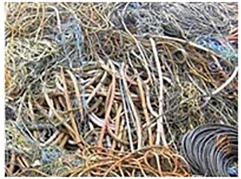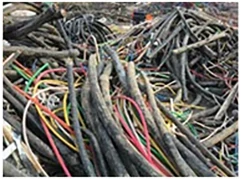Municipal solid waste sorting lines represent a pivotal innovation in waste management technology. As urban areas expand and populations grow, the effective sorting and recycling of municipal solid waste (MSW) have become increasingly critical. These sorting lines epitomize the marriage of engineering and environmental stewardship, providing municipalities with the means to manage waste more sustainably.

At the heart of a municipal solid waste sorting line is its ability to efficiently segregate various types of refuse. From plastics, metals, and glass to organic matter, each type of waste can be identified and separated using cutting-edge technology. Advanced sensors and sorting mechanisms, such as optical sorters, air classification systems, and magnetic separators, enable the line to process high volumes of mixed waste with precision. These technologies are not merely about processing efficiency; they enable the systematic recovery of valuable materials that can be recycled or repurposed, thus bringing economic benefits and reducing the volume of waste sent to landfills.
Municipal solid waste sorting lines are engineered with versatility to handle the diverse compositions of waste streams generated daily. A prominent feature within modern sorting lines is the adaptability to different waste inputs, which ensures consistent functionality despite variations in waste composition. This adaptability is crucial for cities where waste characteristics can be influenced by seasonal or cultural factors. In these sorting lines, robotics and automation play a significant role, with intelligent systems capable of learning and adjusting the sorting process to optimize efficiency and accuracy continuously.

An essential facet of any municipal solid waste sorting line is its integration with the broader waste management infrastructure. Implementing these lines involves careful planning and design to align with existing collection systems and recycling programs. The successful deployment of sorting lines necessitates collaboration between engineers, municipal planners, and environmental specialists to tailor solutions that meet the specific needs of a community. This collaborative approach ensures that the sorting lines not only enhance waste processing capabilities but also contribute to the overarching objectives of sustainability and resource recovery.
municipal solid waste sorting line
From an engineering perspective, the complexity of designing an MSW sorting line cannot be understated. It requires a multidisciplinary approach that incorporates mechanical engineering, environmental science, and computer technology. Engineered to withstand rigorous conditions, these sorting lines must operate continuously with minimal downtime, underscoring the importance of robust design and high-quality materials. The integration of predictive maintenance through advanced monitoring technologies reduces the likelihood of operational disruptions and extends the lifespan of the equipment, thus maintaining the operational efficacy of the sorting line.
Environmental considerations remain at the forefront of municipal solid waste sorting line projects. By mitigating the amount of waste directed to landfills, these systems reduce harmful greenhouse gas emissions associated with waste decomposition. Furthermore, the recovery of recyclable materials contributes to a reduction in the need for raw material extraction, thereby lessening the environmental impact. Municipalities adopting these sorting solutions demonstrate a commitment to sustainable practices, enhancing their reputation and positioning themselves as leaders in environmental advocacy.
While financial investment is a consideration for municipalities contemplating the installation of MSW sorting lines, the long-term economic benefits are substantial. Reduced landfill costs, revenue from recyclable material sales, and the creation of green jobs contribute positively to the local economy. Moreover, by improving waste handling efficiency, cities can allocate resources more effectively, promoting broader economic benefits.
In conclusion, municipal solid waste sorting lines stand as a testament to innovation in waste management. They embody the principles of sustainability, efficiency, and economic viability. As technology evolves, these sorting systems will continue to play a crucial role in helping municipalities achieve their waste reduction goals and environmental targets. With the expertise drawn from multiple disciplines and an unwavering commitment to environmental stewardship, municipal solid waste sorting lines will remain an indispensable component of modern waste management strategies.



